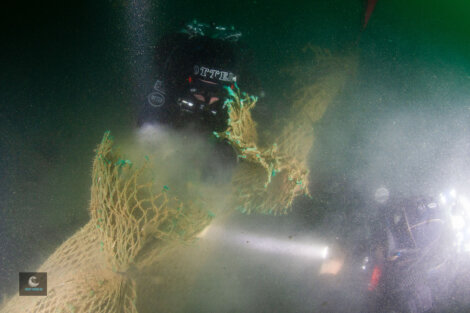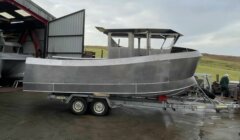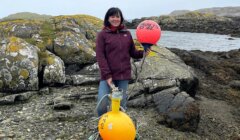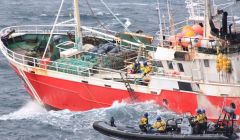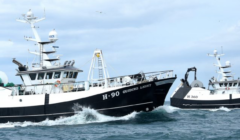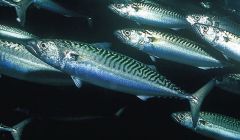Marine / Charity to send divers to Shetland to recover discarded fishing gear
A GROUP of 12 divers is set to head to Shetland later this year to recover any lost or discarded fishing gear – such as nets – in a bid to clean up the seas around the isles.
The work will be undertaken through the conversation charity Ghost Fishing UK.
The charity will visit Shetland between 6 and 11 August, with the volunteer divers due to go on board the Orkney-based MV Valhalla.
“We are unique as a conservation charity in that we work with the fishing community to try and clean up our oceans and maintain a healthy habitat, not just for resources but for wildlife,” charity secretary Christine Grosart told Shetland News.
She said the charity fundraises all year round to support these projects due to the cost of chartering dive boats.
Any lost fishing gear recovered around Shetland will be sorted and washed, and recyclable materials such as polypropylene will be sent to Ocean Plastic Pots in Glasgow for recycling into award winning plant pots.
“Any lost creels we recover will be returned to the fishing community for re-use,” Grosart said.
“We will be sorting and washing and preparing the nets for recycling as we go along, so it would be fantastic to have some helpers on the quayside at Lerwick to roll their sleeves up and give us a hand.”
The charity has sponsors and partners lined up who will be disclosed nearer the time.
It also intends to hold an outreach event to allow people to find out more about the charity, which launched in 2015.
The issue of marine pollution through discarded fishing gear is nothing new for Shetland.
Back in 2020 Shetland Islands Council moved to call on the Scottish Government to address the issue.
Last year the local authority also wrote to the government to request a ban on the use of gillnetting by boats over 15 metres in the country’s waters.
Become a member of Shetland News
Industrial gillnetting – a practice generally undertaken by foreign fishing vessels – uses huge monofilament plastic nets that cover vast areas of sea and are designed to catch everything in their vicinity, often resulting in the entanglement of sea mammals and birds.
The nets are generally discarded in the water after use, posing a continued threat both to wildlife and to shipping traffic. The nets are regularly dragged up by local fishing vessels.
Meanwhile it was revealed last year that 2,000 tonnes of marine rubbish has been collected in Scotland since the ‘Fishing for Litter’ scheme started in 2005.
In Shetland around 58 tonnes of marine litter has been brought ashore through the scheme since it launched locally in 2014, with more than 30 boats involved.
The Fishing For Litter project is organised by KIMO International, a network of local governments working together for healthy seas, cleaner beaches and thriving coastal communities.
Fishermen are provided with hardwearing bags to collect marine litter they find in their nets, and when they are ashore it is placed into a skip. The scheme also covers the costs of disposal.
Become a member of Shetland News
Shetland News is asking its many readers to consider paying for membership to get additional features and services: -
- Remove non-local ads;
- Bookmark posts to read later;
- Exclusive curated weekly newsletter;
- Hide membership messages;
- Comments open for discussion.
If you appreciate what we do and feel strongly about impartial local journalism, then please become a member of Shetland News by either making a single payment, or setting up a monthly, quarterly or yearly subscription.






